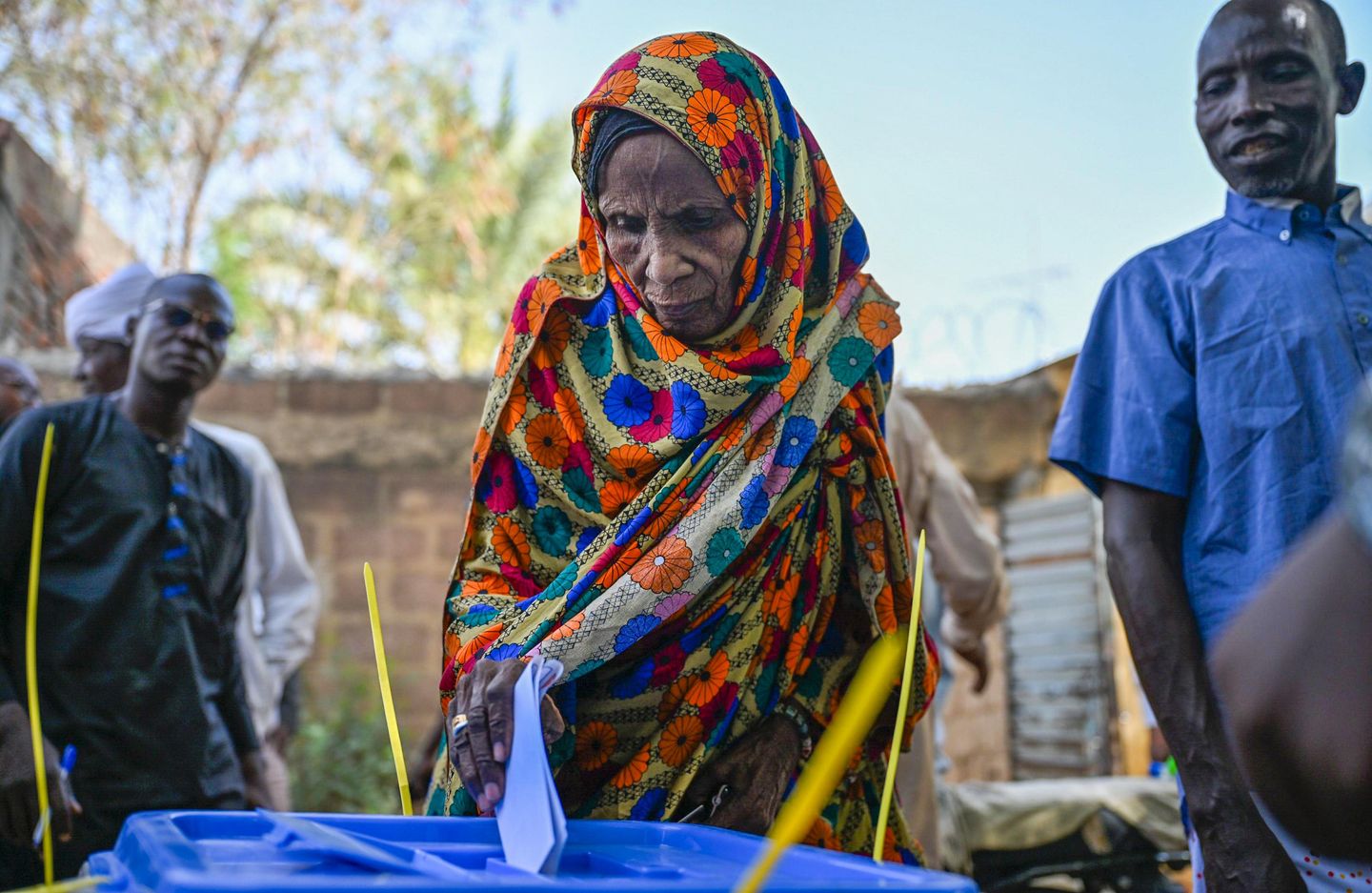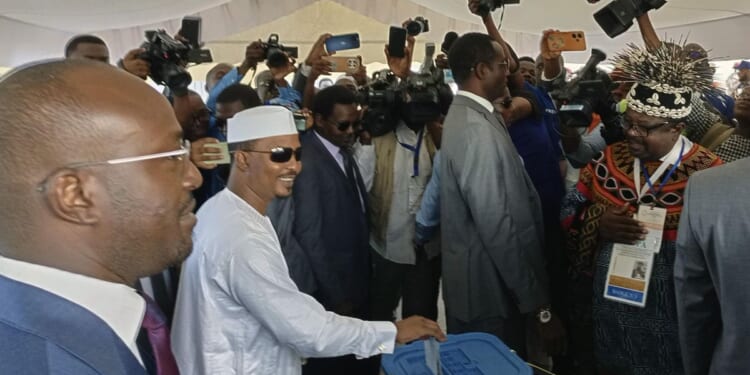
N’DJAMENA, Chad — Chad held its long-delayed presidential election on Monday following three years of military rule under the interim president, Mahamat Deby Itno, a vote that analysts widely expected the incumbent to win.
Deby Itno seized power after his father, who spent three decades in power, was killed fighting rebels in 2021. His government announced it was extending the 18-month transition for two more years, which provoked protests across the country.
The oil-exporting country of nearly 18 million people hasn’t had a free-and-fair transfer of power since it became independent in 1960 after decades of French colonial rule. There were 10 candidates on the ballot, including a woman. More than 8 million people are registered to vote, in a country of more than 17 million people, one of the poorest in the world.
Analysts say Deby Itno is likely to win the vote. A leading opposition figure, Yaya Dillo, the current president’s cousin, was killed in February in circumstances that remain unclear. The main other front-runner in the race is a former opposition leader who recently returned from exile to serve as prime minister in January, Succès Masra.
Chad is seen by the U.S. and France as one of the last remaining stable allies in the vast Sahel region following military coups in Burkina Faso, Mali and Niger in recent years. The ruling juntas in all three nations have expelled French forces and turned to Russia’s mercenary units for security assistance instead.
Earlier this year, Niger’s junta ordered all U.S. troops out, meaning Washington will lose access to its key base in Agadez, the center of its counterterrorism operations in the region. The U.S. and France still have a military presence in Chad, which consider it to be an especially critical partner.
The West also fears that any instability in Chad, which has absorbed more than a half-million refugees from Sudan, could increase the number of migrants moving north towards Europe.
“These are all the reasons the West is staying relatively quiet about the democratic transition in Chad,” said Ulf Laessing, head of the Sahel program at the Konrad Adenauer Foundation. “Everybody just wants this vote to pass so Deby Itno gets elected so they continue to work with him and preserve the stability of the region,” he added.
The vote, which began Sunday for the military and nomads, was marred by a number of incidents of violence that led to at least two deaths, according to local journalists. In Moundou, a major city to the south of the capital, a voter was shot dead by security forces for reasons that were unclear. In the country’s eastern city of Abeche, a civilian fatally stabbed a soldier, also according to local journalists there.
Over the weekend, several civil society groups issued a joint statement to say that many of the 2,900 observers that had requested accreditation to monitor the vote had been denied.
Along with the arrival of refugees from Sudan, Chad is also dealing with high food prices partly caused by the war in Ukraine and a renewed threat from the Boko Haram insurgency spilling over from its southwestern border with Nigeria.
In March, an attack the government blamed on Boko Haram killed seven soldiers, reviving fears of violence in the Lake Chad area after a period of peace following a successful operation launched in 2020 by the Chadian army to destroy the extremist group’s bases there. Schools, mosques and churches reopened and humanitarian organizations returned.
“For years now, we’ve had to cope with the high cost of living, without any solution,” Adoumadji Jean, a teacher at a state secondary school in Moyen-Chari province, said in an interview with The Associated Press. “We want a change this year through this election.”
Boko Haram, which launched an insurgency more than a decade ago against Western education, seeks to establish Islamic law in Nigeria’s northeast. The insurgency has spread to West African neighbors including Cameroon, Niger and Chad.
Human rights groups have called for an investigation into the killing of Chad’s main opposition figure, Dillo. The government has said Dillo was killed during an attack on the the National State Security Agency by his group, known as The Socialist Party Without Borders. But a photo of Dillo showed that he was killed by a single bullet wound to the head.
Human Rights Watch said the killing raised serious concerns about the environment for the election.
According to the U.S.-based Armed Conflict Location & Event Data Project, known as ACLED, Chad experienced almost 270 incidents of political violence, leading to the deaths of more than 1,000 people.
“With his most significant opponents either co-opted or eliminated, and critical electoral institutions stacked with his supporters, Déby Itno’s victory is all but certain,” wrote Michelle Gavin for the Council of Foreign Relations, a Washington- based think tank.
Votes will be first counted at polling stations, but preliminary results will be announced three weeks later on May 21. If no candidate wins outright, a runoff will be held on June 5.
___
Jessica Donati contributed to this report from Dakar, Senegal.












